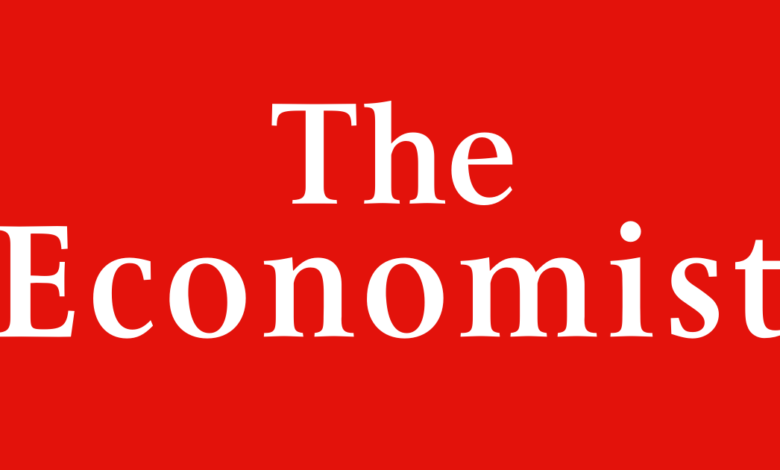Transcript: Interview with Will Straw

By BAGEHOT

MY COLUMN this week looks at the Remain campaign in Britain’s EU referendum. The main organisation in it is Britain Stronger in Europe, an umbrella organisation encompassing pro-Europeans from across the political spectrum and different fields of public life. It is led by Will Straw, with whom I recently spent a day on the trail. During our visit I sat down with Mr Straw to ask him about how the campaign is going, what Remain’s strategy should be and what will decide whether Britain votes for or against Brexit on June 23rd.
Bagehot: Britain is divided on Europe. Some people are extremely keen on it, some are extremely hostile. How many people do you think are between those two camps and how do you win them over?
Will Straw: The unique thing about this referendum is the large number of people who are either undecided, or have a view but are persuadable (for both sides). And that means that although the polls are suggesting it is 50:50—and it is very close—the potential marginal for victory is much greater than that either way. What we think are the central questions that people are asking in this referendum are: what does it mean for me and my family? What are the risks of leaving? So we want to be really clear with people that, as we say, Britain is stronger, safer and better off inside the EU. That being inside is good for jobs, low prices, rights at work; is good for tackling cross-border crime and immigration thanks to the European Arrest Warrant. Then of course there are the future benefits as we deepen co-operation in terms of free trade in areas like services. So these are massive benefits that people can enjoy from being in the EU, which are at risk. And what people are constantly saying to us is: what would it look like if we left? And so far the other side have not been able to give a clear answer.
Have you pinpointed any characteristics that are especially common among people who are yet to make their mind up?
No. While there has been some interesting analysis of the demographic characteristics of people who are absolutely for Remain or absolutely for Leave, people who are undecided are pretty representative.
Typical swing voters?
Typical swing voters. They come from a mixture of different party affiliations, different ages, different backgrounds, different parts of the country. In a sense the exception to that might be the one or two parts of the country where there seems to be a big majority in favour of staying in. Some of the polling suggests that in Northern Ireland and Scotland in particular, maybe in London, there is a greater majority in favour of staying in and therefore fewer people who are undecided. We have to treat every vote as if it is the last, make the case to every single person in the country. And that is why we put such a lot of emphasis on grassroots campaigning, as you have seen.
On that point, looking at the In and Out campaigns, it is not in doubt that the former is more united, more professional, better run. But people talk about the “passion deficit”; the idea that people who are anti-EU are really driven. This is the referendum they have been waiting for for years and the great cause that animates them. How do you rival that as a campaign that, as enthusiastic as it may be, does not have that same fire?
What you have seen today in York is a group of activists from a range of different parties (and none) who are prepared to stand in the driving rain handing out leaflets to shoppers going about their business. Then we went to the university and met scientists and people at the Law Department who are passionate about what the European Union has done, allowing them to carry out their research because of EU funding, but also enabling their areas of work, because of EU standard setting and European law and so on. Then we talked to a group of students who feel that, in some instances, they would not have been able to do their degrees were it not for the EU, in others that the opportunities for them in the future are very much contingent on our EU membership, and therefore committing to campaign on the ground in York during this referendum. So although it is true that leave campaigners have been making more noise over decades, there is just as much passion out there on our side. Indeed, I think when you look at what is actually happening at weekends. Not just the one off rallies like the George Galloway and Nigel Farage rally, but every weekend and indeed weeknight evenings, there is more activity from our side than from the Leave side. There is more energy, vitality, youth. And people from a range of different backgrounds, many of whom have no party political experience at all, are getting involved.
I think one of your strongest lines is the idea that it is a step into the unknown to leave the European Union. I have seen on the streets that it clearly rings true to people. But the counter-argument, from the Leave campaign, is that you don’t know what you are voting to stay in if you vote Remain. That the EU is evolving; a process, not something static. That integration will move ahead at some point. So: this is a once-in-a-generation referendum and we don’t know what we are signing up for come 2025, 2035. What is your retort to that?
I think we know about many of the future opportunities that we face if we stay in the EU: for our economy as we further the single market in new areas of the economy like creative industries and digital services; for the more and more Brits who seek to study, travel and work abroad. These opportunities are all at risk if we vote to leave. And conversely, the overwhelming weight of expert opinion, including Mark Carney, states that the greatest risk is from leaving the EU; not just that it is a bigger risk than staying in, but it is the biggest single domestic risk of them all. So I think it is a bit incredible for Leave campaigners to suggest that it is riskier to stay in. We know what In looks like. We have no idea what Out looks like, because they don’t really know. And in terms of what happens with the Eurozone, whether we are in or out of the EU, we want the Eurozone to succeed. It is our biggest trading partner. We would much rather be at the table helping them to make sensible decisions in our interests. Sometimes you will hear Leave campaigners say that we are being held down by the EU and need to branch out to the fast-growing countries. Are they not seeing what is happening in the global economy? Are they not seeing how China is slowing down, how Brazil is in recession, how Russia is spluttering?
We will always need our neighbours.
We will always need our neighbours. And it seems to me that, of course we want to increase our trade with those other countries, but maybe we should take a leaf out of Germany’s book. They export four times as much as us to China, from within the EU.
Students and young people are among the most pro-European groups. To that you could add city-dwellers, expats (people who live every day the benefit of free movement) on the continent. You have a problem there, because those are all groups that are traditionally difficult to get to the polls. In each case there is a tendency to turn out in smaller numbers than other groups. How are you going to overcome that?
We want to encourage everybody who is eligible to turn up to vote, so we are putting a huge amount of effort into registering young people and students. There are now Stronger In chapters at well over 50 universities across the country, like York, as we saw, who are helping their fellow students to register. And obviously we will be carrying on with that work. If people sign up to the campaign, spend a bit of their spare time campaigning, it makes them more likely to vote themselves and to encourage their friends to do so. What we have to do is make this referendum—which can seem a bit esoteric to people—feel real and about people’s future opportunities, about bread-and-butter issues like jobs and prices and about keeping our streets safe. And that is very much where we are centring our campaign.
It is still early days in this campaign, but looking at the first few weeks a lot of Conservative MPs (perhaps more than we anticipated) have come out in favour of Brexit. Boris Johnson and Michael Gove, recognisable figures with some gravitas, have come out for it. Are you happy with how things have gone so far?
At this stage, just weeks after the date was set, the national conversation has been overwhelmingly about the economy and security, which are two of the areas that have most to benefit from our continued membership of the EU. Conversely it has not been so much about the issues that the other side want it to be on. Every day when the conversation is on the economy and security is a day when we are getting our points across. The other side are in disarray. You have car-crash interviews like Boris’s on Marr where he just could not articulate what the future for Britain will look like if we leave. Indeed, when Leave campaigners do manage to articulate a vision it contradicts what the next one is saying, so there is no consistency. And so they have become obsessed with process and crying foul, rather than focusing on the issues that matter: what does this mean for me and my family, what does it mean for my town and my local area?
The more Nigel Farage fronts the Leave campaign, the better for you, no?. You must cheer every time he pops up on TV.
No, I don’t think we feel that way about Nigel Farage. He has shown in previous elections that he is a persuasive, charismatic figure and so we are very mindful of his role in this campaign. What we want to do is take him on, challenge him, have the debate, pin him down on precisely what he wants Britain’s future to be. To understand whether his priority is ending free movement and therefore if he is willing to sacrifice jobs and low prices, which would be the consequence; how he plans to combat cross-border crime and terrorism from outside the EU; how he thinks we can combat the aggression of Russia from outside; not to trivialise or be complacent but to take the debate to him.
We have talked about UKIP and the long-standing Conservative rift on Europe. But what about Labour? We are used to the idea that Labour is one of the main bastions of pro-Europeanism in this country, but in its current leadership you have people who in the past have campaigned for Britain to leave the EU, who perhaps come across as more ambivalent about Europe than the likes of Tony Blair or Ed Miliband. When you look at the demographics of the Out campaign, at the demographics of the groups that might be persuaded to vote Leave as a protest at the harsh winds of globalisation—working-class people outside the big cities in traditional industrial areas—a lot of those are classic Labour voters. I’m not denying that there are parts of the Labour Party which are gung-ho for the In campaign, but do you worry that this recent shift of emphasis in the party could undermine the campaign to reach those voters.
The starting point is that 213 of Labour’s 232 MPs have signed up to Alan Johnson’s campaign. There is a huge amount of activity taking place around the country led by Alan Johnson but with MPs from every region taking part. That has been very much focused on getting the membership out-and-about, engaged with the campaign. We want to encourage all people who are pro-European to get involved in this debate. So we want to see more from trade unionists, from the Labour leader and his supporters, and there is encouraging signs that that is taking place. We are mindful of the fact that there are very important elections in Scotland, Northern Ireland, Wales, London and many English councils that will be the main focus for political parties (not just Labour) over the next weeks, but after May 5th we would expect there to be a huge focus on the EU referendum from people from right across the political spectrum.
Which will still give you six weeks until the referendum.
Seven actually.
On that “big tent” approach. Obviously that is the right approach and there is not the sense with the In campaign that everyone has a different idea about what their side means. But there is a tension, isn’t there? You have big businesses, some very market-liberal figures for whom Europe means free trade, access to markets and so forth. And you have people on the left who are pro-European because of the social chapter, regulation, the good society. How do you reconcile what is quite a sprawling movement?
Our board brings together captains of industry with trade unionists like Brendan Barber. It brings politicians from the radical left like Caroline Lucas together with long-standing Conservative MPs like Damien Green and centre-ground figures like Peter Mandelson and Danny Alexander. It brings people from the military like Sir Peter Wall together with people from the arts and education like June Kelly of the Southbank Centre and Janet Beer of Liverpool University. We have a huge array of different people on our board representing those different sectors, all united in the belief that Britain is stronger in Europe. And I think that is an asset for us, because we are united, we are all of the same view and are clear about what the central benefits are of staying in the EU. But different people will have different emphases. For example, I would hope that Caroline Lucas would make more of a point about the benefits of social rights and environmental protections to people who listen to her. But the key point is this: we might emphasise slightly different benefits but we all recognise the benefits of being in the EU and that those are at risk if we leave. The other side, despite the fact that they have been preparing for this for 25 years, cannot even alight on a single view of what Britain’s future should look like outside the EU.
Or even how to leave the EU.
Or even how to leave the EU. And even if they did, all the alternatives would be worse.
One of the criticisms levelled by the Leave campaign is that your side is “Project Fear”. Even looking at it from a pro-European point of view, some of the best arguments for staying in the EU are that the risks are just not worth taking. Is it fair to call it Project Fear? And if not, how do you keep the campaign positive when many of the arguments are basically negative.
“Project Fear” is a smoke-screen used by Leave campaigners because they do not have an argument about what Britain’s future looks like. It is as simple as that. We have been making a positive and patriotic case from the start. I think that is pretty clear from the name—Britain Stronger in Europe—and from our key argument that “Britain is stronger, safer and better off” in Europe than we would be on our own. The literature that we have produced is overwhelmingly about making the positive case. But it is legitimate for us to first of all challenge the other side about what their vision is and quite rightly accuse them of not coming clean with the British public about what Out means and secondly to look at the risks for the economy, our security, our place in the world if we were to leave. What we always try to do is be very precise about what those risks are. So we are not trying to scare people. We are trying to be realistic not just about what we think the risks are but what a huge number of independent experts are saying: the governor of the Bank of England, many economists, former military leaders, people from the environmental and climate change community, all of whom say that these hard-won benefits of being in the EU are at risk if we leave. That is not Project Fear, it is Project Reality.
Will Straw, thank you.
Thank you.




